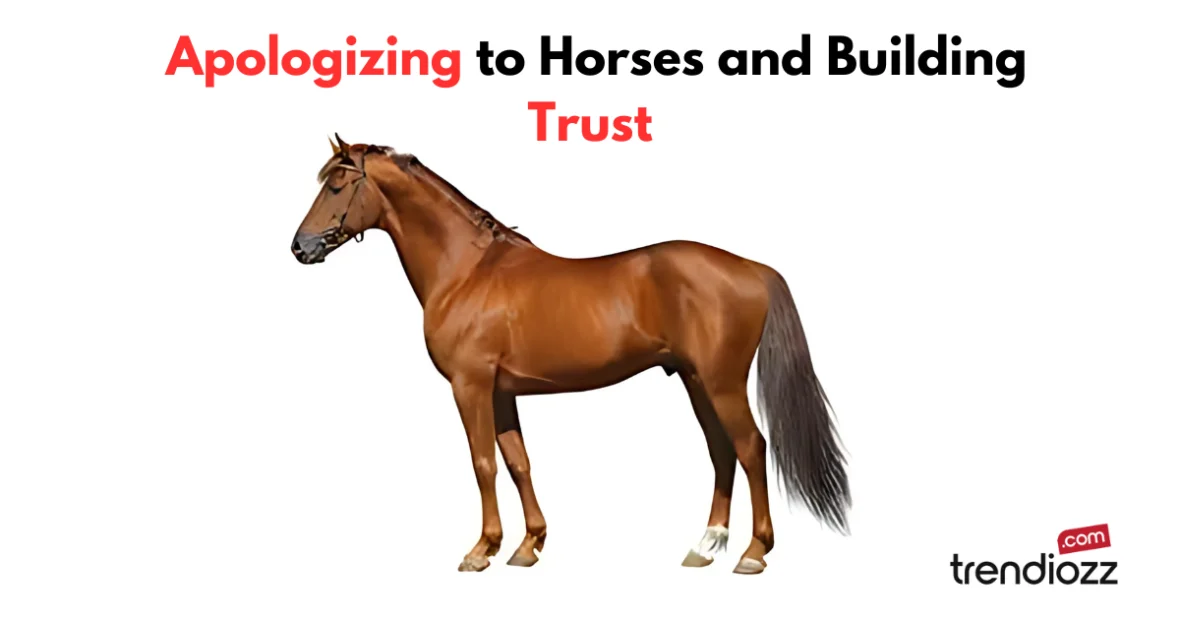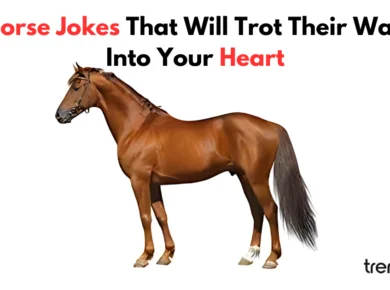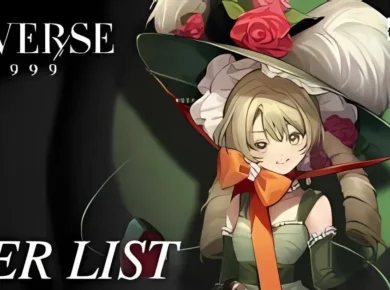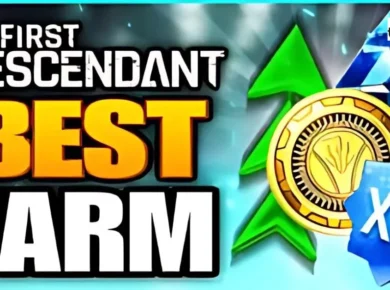Horses are incredible animals that communicate with us in ways that go beyond words. Their ability to understand human body language and emotions creates a unique bond between them and their riders. However, like any relationship, mistakes can happen. Whether it’s an unintentional scare or a misunderstanding during training, knowing how to say sorry to a horse is important to maintain trust. In these moments, a simple apology might not involve words but rather actions that speak volumes. If you’ve ever thought, “I’m really sorry I don’t know who that horses belongs to,” then understanding how to rebuild that trust with your horse is key.
| Apology Gesture | What It Means | When to Use It | Horse’s Reaction | Effectiveness |
|---|---|---|---|---|
| Gentle Patting | Sign of reassurance and care | After a mistake | Calm and relaxed | High |
| Soft Voice | Communicates regret and calmness | Immediately after the incident | Perked ears, listening | Medium |
| Slow Approach | Shows that you mean no harm | After startling the horse | Less defensive posture | High |
| Grooming | Bonding and care | Any time | Nuzzles, stands still | High |
| Offering Treats | Positive reinforcement | After regaining some trust | Takes treat willingly | Medium |
| Spending Time | Shows you’re committed to the bond | During calm periods | Relaxed and comfortable | High |
| Talking Gently | Soothing and familiar | Anytime you feel the horse is anxious | Focused on your voice | Medium |
| Leading Quietly | Demonstrates control and care | After a scare | Follows without hesitation | High |
| Avoiding Eye Contact | Not challenging the horse’s space | When approaching | Lessens anxiety | Medium |
| Standing Near | Building trust with proximity | Anytime | Feels secure, less anxious | High |
The Role of Consistency in Horse Training and Apology
Horses thrive on routine and consistency. When a mistake happens, like an incorrect command or a sudden movement, it can break their trust. Restoring this trust requires not only an apology but consistent behavior going forward. Horses need to feel secure in their environment, and this comes from a predictable and stable routine. If you apologize but continue making the same errors, it may confuse your horse and slow the rebuilding of trust. By being consistent in your actions, you show your horse that the situation is under control, and this predictability makes it easier for them to forgive.
How to Say “I’m Really Sorry I Don’t Know Who That Horses Belongs To”
It might seem strange to think about apologizing to a horse, but they are perceptive creatures that sense our feelings and intentions. When you’ve done something that startles or upsets your horse, it’s crucial to communicate that you mean no harm. Horses respond well to non-verbal gestures, such as gentle pats, soothing voices, and calming energy. In this situation, simply acknowledging the horse’s discomfort and offering comfort can be a way of saying, “I’m really sorry I don’t know who that horses belongs to.” Small actions like these show the horse that you care and wish to re-establish the connection.
Horses don’t understand apologies the way humans do, but they are highly intuitive animals. Offering reassurance through actions is the best way to express remorse.
Rebuilding Trust with Your Horse
If you’ve had a misunderstanding or upset your horse, rebuilding trust should be your next step. Horses thrive on consistency and kindness, so it’s essential to be patient. Start by spending quiet time with your horse, grooming them or simply standing nearby to show that you mean no harm. Over time, these small gestures will help the horse feel comfortable again.
Whether you’re apologizing for a riding mistake or an accidental scare, the key is to act gently and without pressure. Rebuilding trust is a gradual process, and your horse will appreciate your efforts to make amends. Ensure you spend quality time bonding and engaging in positive activities like hand-feeding or slow walks to restore the relationship. You might find yourself saying, “I’m really sorry I don’t know who that horses belongs to,” but through actions, you’ll rebuild that connection.
Signs That Your Horse Accepts Your Apology
Apologies aren’t just about saying the words—they’re about recognizing and responding to your horse’s behavior. Horses, though non-verbal, have distinct ways of showing their feelings. When a horse has forgiven you or feels at ease again, you’ll notice physical cues such as relaxed ears, a soft gaze, or a willingness to come closer to you. Your horse might even nuzzle or brush against you, a sign of affection and trust.
If your horse has accepted your apology, it will become more responsive to your commands and show a calm demeanor. Observing these behaviors will tell you that the trust has been restored. So, when you think, “I’m really sorry I don’t know who that horses belongs to,” watch for these signs of forgiveness.
Common Mistakes to Avoid When Apologizing to a Horse
It’s important to know what not to do when trying to apologize to your horse. Abrupt movements, loud voices, or forcing interaction can further break down trust. Horses are sensitive to body language, and if they sense nervousness or aggression, it can cause anxiety or fear. Always approach your horse slowly, using a calm tone and avoiding any sudden actions that might alarm them.
Similarly, trying to rush the process of rebuilding trust can backfire. Horses need time to feel comfortable again, and forcing them into stressful situations won’t help. Take things slowly, ensuring that every interaction is positive and relaxing for your horse.
The Emotional Connection Between Humans and Horses
Horses and humans share a unique emotional bond, built on trust, communication, and care. Apologizing, in the context of this relationship, is part of maintaining that trust. Horses are intelligent, emotional beings, and they respond to how we treat them. When riders take the time to understand their horse’s emotions, it strengthens the connection between them.
In situations where trust is broken, saying, “I’m really sorry I don’t know who that horses belongs to,” isn’t just about words—it’s about showing empathy and commitment to the relationship. Riders who invest time in their horse’s emotional well-being are rewarded with a deeper bond that goes beyond simple training.
Horse Emotions and Body Language
Horses communicate their emotions primarily through body language. Understanding these signals is crucial for building a solid bond and knowing when something is wrong. When a horse is stressed or upset, it may show signs like swishing its tail, flattening its ears, or even stamping its feet. On the flip side, a content and relaxed horse will have a soft gaze, ears forward, and will engage with its environment calmly. By learning to read these signals, you can better understand when a horse is upset and when it’s the right time to offer an apology. Saying “I’m really sorry I don’t know who that horses belongs to” without understanding their emotional state won’t be effective unless you acknowledge the underlying issues.
Do Horses Hold Grudges? Understanding Forgiveness in Horses
It’s a common question: do horses hold grudges? While horses don’t experience emotions in the same way humans do, they do have strong memories and can recall experiences, both positive and negative. If a horse feels unsafe or has been frightened, it may take longer for them to trust again. However, horses are generally forgiving animals if approached with patience and care. By making efforts to show consistent kindness and by avoiding behaviors that trigger stress, you’ll find that horses do not hold grudges. They respond to the current treatment and, with time, will forgive past mistakes.
Physical Contact: The Power of Touch in Apologizing to a Horse
Physical touch is a powerful tool in communicating with horses. Gentle pats, grooming, and slow, deliberate movements can convey a sense of calm and reassurance. When apologizing to a horse, using physical contact in the right way can show your intentions to rebuild the relationship. A soft stroke down the horse’s neck or a quiet moment spent grooming can ease tension and help the horse feel at peace again. When you’re saying, “I’m really sorry I don’t know who that horses belongs to,” actions often speak louder than words, and touch can be a comforting way to apologize.
The Importance of Patience in Rebuilding a Horse’s Trust
Patience is a key factor when it comes to restoring trust with a horse. Horses are prey animals by nature, which means they are quick to react when they feel threatened or unsure. It’s important to remember that trust-building can’t be rushed. After an incident or mistake, it may take several calm, consistent interactions before the horse feels comfortable again. Rushing the process could lead to more fear or confusion. By allowing the horse to approach you on its own terms and reinforcing trust through patient, calm interactions, you’ll create a stronger, lasting bond.
How to Prevent Future Misunderstandings with Your Horse
The best way to avoid needing to apologize to your horse is by preventing misunderstandings in the first place. Understanding your horse’s temperament, stress triggers, and preferred routines will help minimize the chances of startling or upsetting them. Make sure to pay attention to their signals and body language, and try to avoid putting them in situations that may cause anxiety. Setting clear boundaries during training and ensuring a calm, quiet environment will reduce the likelihood of mistakes and the need for an apology. Remember that your goal is to create a harmonious relationship where both horse and rider understand and respect each other.
Building a Lifelong Bond Through Communication
Building a bond with a horse is an ongoing process that requires time, effort, and understanding. Just like in human relationships, good communication is the foundation of this bond. Apologizing, whether for a mistake or misunderstanding, is part of that communication. By continually learning how to better understand your horse’s needs, moods, and behaviors, you’re able to forge a connection built on trust and respect. Whether it’s a simple apology or making amends for a bigger mistake, remember that horses value your actions far more than words. As you say, “I’m really sorry I don’t know who that horses belongs to,” let your actions show your commitment to your horse’s well-being.
Conclusion: Building a Long-Term Relationship of Trust
In the world of horse-riding and care, trust is everything. Mistakes happen, but it’s how we handle those mistakes that define our relationship with our horses. Apologizing through gestures, patience, and care helps to maintain and rebuild trust after any misunderstanding. Horses are forgiving creatures, but they need reassurance that their human companions are reliable and safe.
By recognizing the importance of actions over words, you can show your horse that you are committed to their well-being. As you move forward, remember that even when you think, “I’m really sorry I don’t know who that horses belongs to,” your horse will understand your efforts to restore the bond.
FAQs About Apologizing to Horses
1. How do horses understand an apology?
Horses may not understand verbal apologies like humans do, but they are highly sensitive to body language, tone, and actions. Apologizing to a horse involves using gentle gestures, a calm voice, and consistent, reassuring behavior to show that you mean no harm. By offering positive experiences and patience, horses can sense your intentions and begin to trust you again.
2. How long does it take for a horse to forgive a mistake?
The time it takes for a horse to forgive depends on the individual horse and the severity of the mistake. Some horses may forgive quickly if they are handled calmly and consistently, while others may need more time to feel comfortable again. The key is to be patient, build trust through consistent actions, and avoid putting the horse in stressful situations.
3. What are signs that a horse has forgiven you?
A horse that has forgiven you will display signs of trust and relaxation. These signs include soft, forward-facing ears, a calm posture, and willingness to approach you. They may also nuzzle or interact with you without hesitation, showing that they feel safe and comfortable in your presence.







